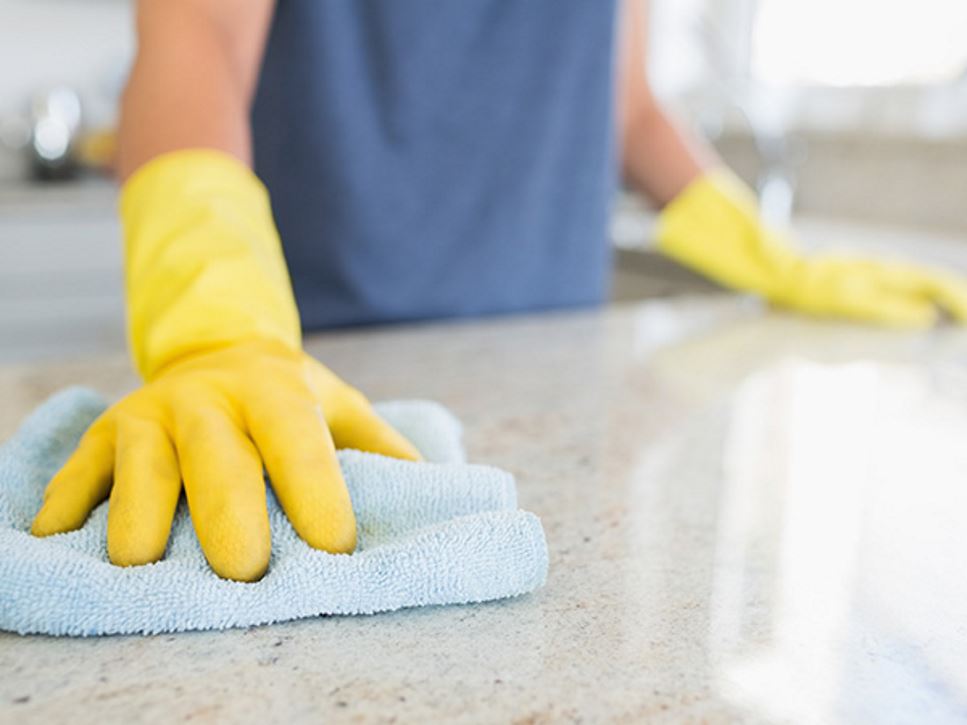Spring means flowers, warmer weather and of course spring cleaning. This is a great time to go through your kitchen and do a food safety check. Here are some simple steps to help reduce cross-contamination in the kitchen and minimize the risk of food poisoning.
Kitchen Surfaces
Illness-causing bacteria can be found lurking in many places in your kitchen. To avoid unintentionally spreading bacteria to food, be sure to properly wash hands, utensils, cutting boards and other surfaces.
- Keep countertops clean by washing with hot, soapy water before and after preparing food. Remember to clean appliances and cutting boards, as well.
- Keeping cutting boards and surfaces clean, and following proper sponge safety, helps reduce bacteria and prevent cross-contamination.
- As an optional extra step, sanitize surfaces and utensils with a solution of 1 tablespoon of unscented, liquid chlorine bleach per gallon of water.
Refrigerator
Remember to check the refrigerator and freezer and clean the shelving and drawers where bacteria can hide. Bacteria that cause foodborne illness aren't always visible so be sure all surfaces including small crevices are cleaned well.
- Check that the refrigerator temperature is set below 40°F.
- This is a good time to look for unnoticed spills and remove lingering odors. Wipe up spills and clean surfaces with hot, soapy water and rinse well. Be sure to clean under drawers and edges of glass shelves.
- To keep the refrigerator smelling fresh and help eliminate odors, place an opened box of baking soda on a shelf. Avoid using solvent cleaning agents, abrasives and any cleansers that may impart a chemical taste to food or ice cubes, or cause damage to the interior finish of your refrigerator. Follow the manufacturer's instructions.
Shelf Life
Make sure foods haven't spoiled whether in the pantry or in the refrigerator.
- This is a good time of year to check for foods that are losing their quality or have spoiled — whether in the refrigerator, freezer or pantry.
- Make spring the time to begin new food safety habits. To minimize food waste, check the refrigerator regularly to be sure foods are consumed before they spoil. Once a week, make it a habit to throw out or compost perishable foods that should no longer be eaten.
Find a Nutrition Expert
Looking for credible nutrition information and recommendations? The Academy of Nutrition and Dietetics' network of credentialed food and nutrition practitioners are ready to help!
